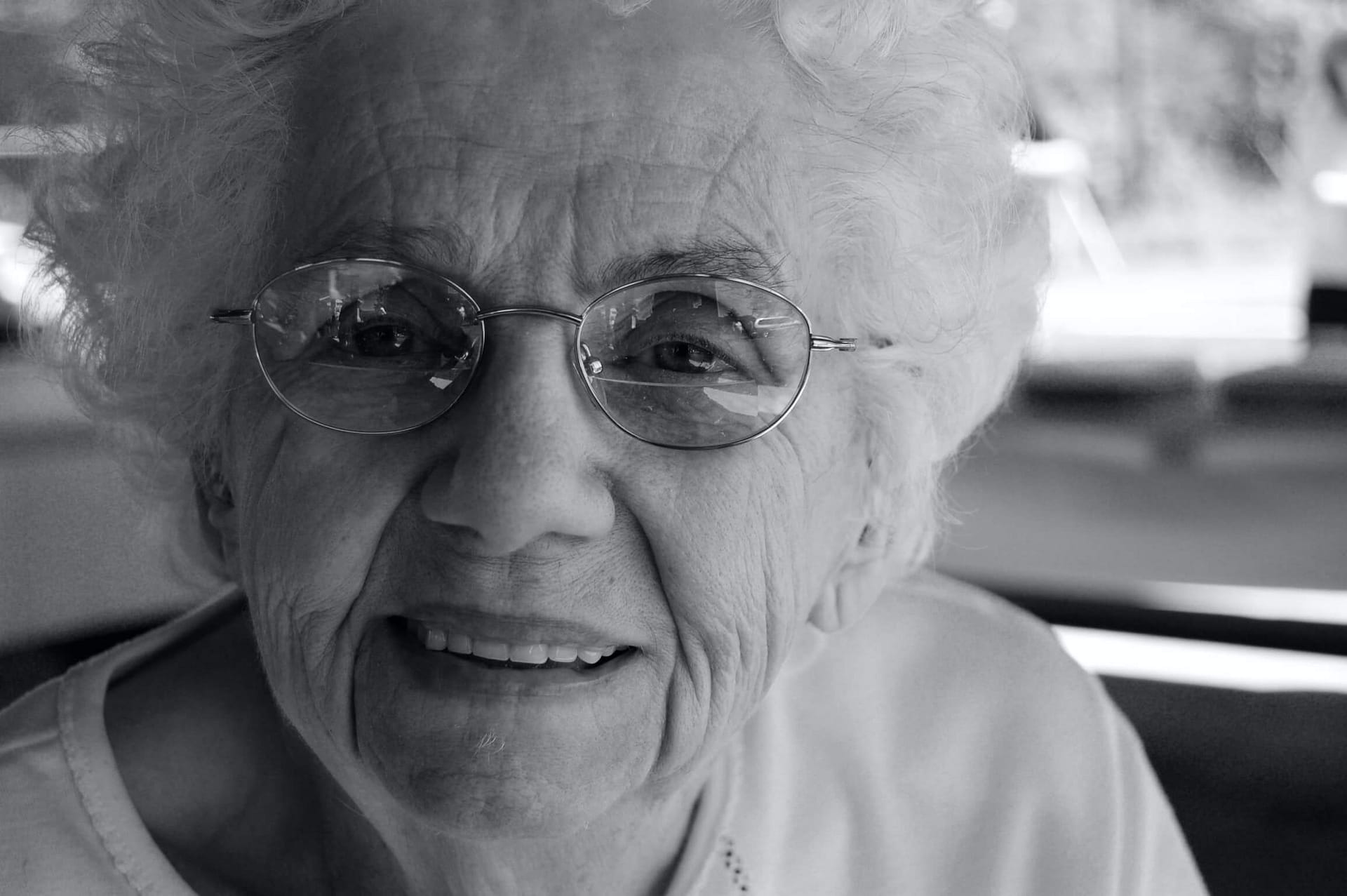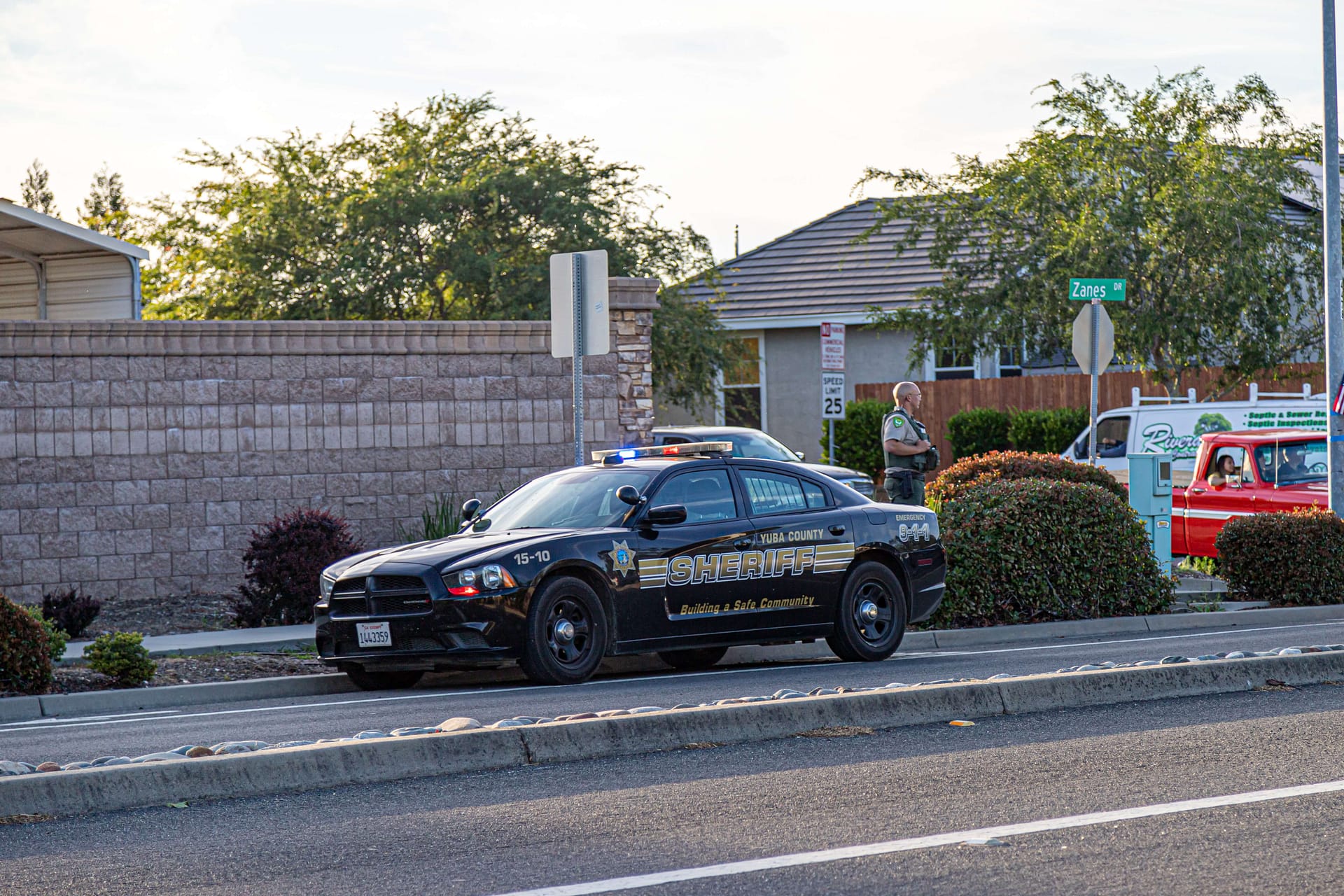My mother has been handcuffed and dragged to the back of a police cruiser three times in her life. This inauspicious streak started four years ago, right before she turned eighty years old. No, my mother didn’t go on a crime spree or become a civilly disobedient protester. My mother had developed dementia.

Looking back, my sisters and I realize Mom’s dementia descended slowly, and she did a terrific job of hiding her deficits. Our father had Alzheimer’s dementia, and he went quietly into that good night after being sick for seven years. My mother has a different kind of dementia called frontotemporal lobe dementia (FTD) which has robbed her of her common-sense decision-making, or executive function as the neurologist calls it. This disease makes her a danger to herself and to others.
One morning before my mother’s diagnosis, I was at her Florida home trying to talk her into going to the ER because her behavior in the day prior had been very strange. Suddenly, a mother who had never raised a hand to me turned and slapped me hard across the face. I backed away, and she flew at me again; so I ran from the room. Shockingly, she gave chase. I managed to get into a ground floor bedroom and lock the door behind me. I pushed a twin bed in front of the door since I could hear her working on popping the flimsy door lock. Then I called my sister who lived nearby, and she told me to call 911.
My sister and her husband arrived quickly and helped me escape the house from the bedroom window. When the police arrived, we told them of our situation and our desire to get our mother to a hospital. The police process in these situations is to subdue. Sadly, my mother with dementia impaired decision-making skills opted to fight back for all she was worth. The two officers lured her out of the house, grabbed her from behind, pinned her arms behind her back, cuffed her, and then physically carried her to the cruiser, while she thrashed and screamed. Seeing my elderly Mom dragged off in handcuffs this way is a sight I won’t forget, and it was only the start of her three-times unlucky streak.
That trip to the hospital eventually yielded her dementia diagnosis and we sisters sprang into what we thought was protective action. We placed Mom into an assisted living facility to minimize her physical risks. Mom had other plans, however, and she managed to escape that facility twice, resulting in two more police actions to find her, subdue her, cuff her and return her to care. My family’s situation with caring for someone with dementia is repeated every day throughout this country, however, this piece is not about dementia, or controlling the fight or flight impulses people with dementia suffer.
This is about Defund the Police.
Why is subduing an old lady with dementia a police function? Being mentally ill is not a criminal offense. I’m also confidently guessing this is not the type of work for which police officers sign up.
Like many white, suburban people, when I first encountered this phrase, it sounded to me like people wanted to completely get rid of the police, or at least substantially cut their budgets so that there are fewer of them around. I also thought it sounded like a rightfully angry and desperate retort to the police actions that left George Floyd and so many other people of color dead or wounded at the hands of police. In my head, I thought Defund the Police meant: “Something must be done. The police are all racists. Let’s cut their budgets and get rid of them!” I was in complete agreement that something must change, but I could not envision a town without police so just cutting their budgets seemed to be an extreme idea.
Then I did some research and learned that between a third and half of all police calls nationally are for non-policing matters, like, say, a mentally confused grandma on the run. That changed my thinking.
Why is subduing an old lady with dementia a police function? Being mentally ill is not a criminal offense. I’m also confidently guessing this is not the type of work for which police officers sign up.

We are recognizing in our country that we have criminalized too many things: drug addiction, homelessness, mental health crisis, and apparently sometimes, dementia. All of these social ills have fallen at the feet of police officers. If you have an aggressive or wandering person with dementia in your care right now, the police are likely your only option if you suddenly need help. This is a mismatch of resources.
Defunding the police means rethinking what we are asking police to respond to and shifting some former police resources to differently trained responders. Rather than ask our police officers to be able to handle all types of crisis situations, communities could invest in mental health crisis teams of compassionate, unarmed people who could use counseling skills to talk a person into compliance before using appropriate and humane force. Bringing armed people to a crisis, no matter their level of compassion, ups the potential for violence in difficult situations such as these. My Mom still recalls with horror having the police “after her.”
My whiteness meant that I wasn’t afraid to call 911 on the day of my mother’s breakdown. The Defund movement is also about more than just the ineffectiveness and inefficiency of asking our police to function as social workers. Defunding the Police also calls attention to the inequities in how police interact with people of color and white people. It is about the undeniable systemic racism that pervades our society, specifically our criminal justice system. In short, those three words, defiantly scrawled on many protest placards this summer, represent many ideas that must be acted upon.
In fact, police chiefs know these ideas are not new. Prior to this summer, many chiefs were trying to call attention to the fact that policing was becoming impossible due to the steady attacks on the social safety net. Some had already identified racial bias among their ranks and were taking steps to address it. In short, many police chiefs had already embraced the ideas of Defund. But the grotesque, eight-minute murder of George Floyd at the hands of police, brought this issue to the forefront, and the timetable for reform is now.
I don’t want to live in a town without 911. I want to have a place to call if I am a victim of a crime. I also want to have a just and equitable police force that is well paid and able to focus on doing police work. If my mother escapes, I want a team of mental health professionals to call who will treat her like the ill person that she is. I want the streak to end, and I don’t want to see my now eighty-four-year-old mother, nor anyone with dementia, in handcuffs again.
So, I agree: Defund the Police. Re-examine and narrow police functions, make our police accountable to all people, and make better use of a community’s budget resources by the creation of community crisis teams to take those calls for help. This is not a radical idea. It is only common sense, which like so many things, I learned from my mother.
This opinion article was written by Donna DiNardo, a resident of Mt. Lebanon and a member of the M.O.R.E Steering Committee, and originally published by M.O.R.E on October 31, 2020.
